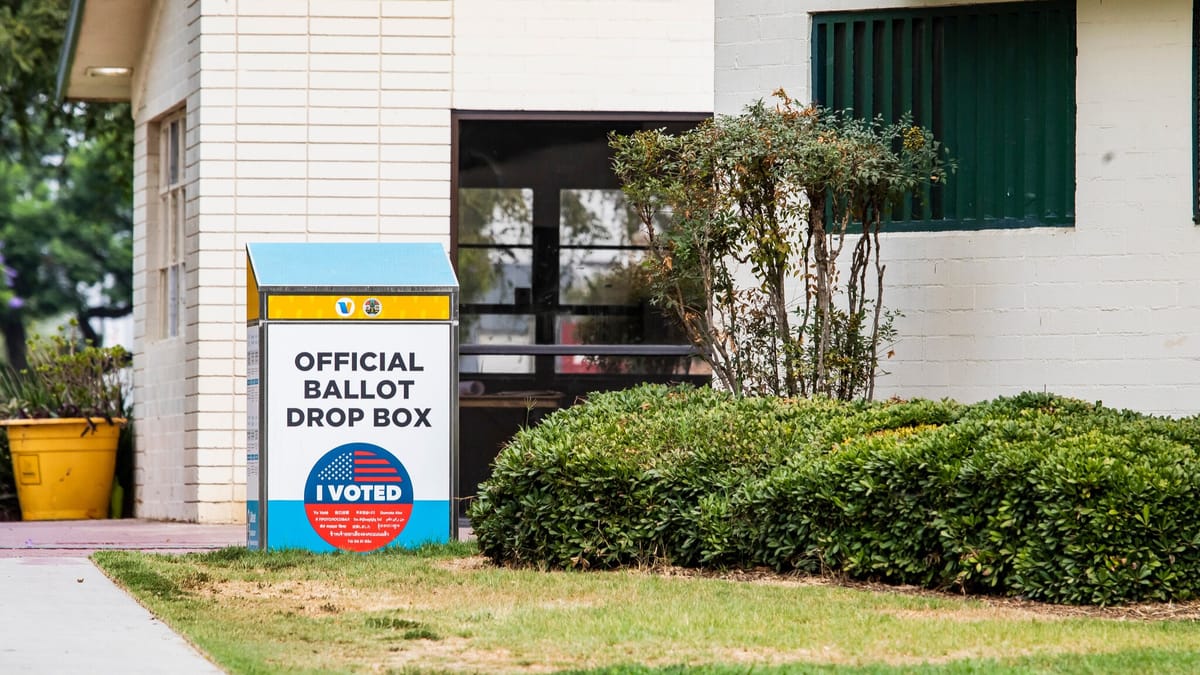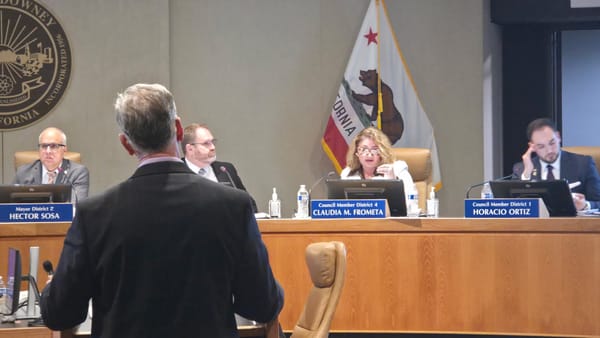Bell Gardens City Council backs Prop. 50

BELL GARDENS, CA — The Bell Gardens City Council voted 4–1 Monday to endorse Proposition 50, Gov. Gavin Newsom’s ballot measure to redraw California’s congressional map ahead of the 2026 midterms.
Prop. 50, which appears on the Nov. 4 statewide ballot, would adjust district lines designed to favor Democrats in five congressional seats now held by Republicans—potentially leaving only four California Republicans in the House of Representatives.
City Manager Michael O’Kelly, citing language from the ballot measure, told the council that the goal of Prop. 50 is to “maintain balance in Congress” after Texas Republicans approved new maps creating five additional GOP-leaning districts in a “plan (that) is considered partisan.” O’Kelly said the measure is needed to “protect California’s role as a check on federal overreach.”
In early August, President Trump told CNBC’s Squawk Box, “We are entitled to five more seats,” after Texas Republicans advanced the redistricting plan. Later that month, after signing the maps into law, Texas Gov. Greg Abbott (R) said the state is “now more red in the United States Congress.”
Bell Gardens and other Southeast LA communities have been particularly affected by Trump’s immigration enforcement raids and face looming cuts to social services. Across Bell Gardens, Bell, Maywood, Cudahy, and Commerce, nearly half of residents are foreign-born and almost one in five live in poverty, according to Census Reporter.
Councilmember Jorgel Chavez, who sponsored the resolution to endorse Prop. 50, said, “This is our response to what Texas is doing.”
“If Republicans retake control of Congress,” Chavez wrote in a pro–Prop. 50 opinion piece published by The SELA Sun, “those raids and deportations will intensify. We’ve seen this before: families torn apart, communities targeted, and lives upended. A Republican-controlled House would mean more funding for ICE, more attacks on immigrant rights, and deeper cuts to healthcare and education.”
Trump’s “One Big Beautiful Bill,” passed earlier this year and unanimously opposed by congressional Democrats, massively expands the federal budget for immigration enforcement while cutting funding for healthcare and food assistance.
The Brennan Center for Justice, a left-leaning policy institute at New York University, says the law represents one of the largest expansions of immigration enforcement in U.S. history. It directs more than $170 billion over four years toward border and interior operations, nearly tripling the budget of Immigration and Customs Enforcement (ICE) and sharply increasing detention of immigrants, including many with no criminal record. The group describes the bill as creating a “deportation-industrial complex.”
Chavez said the difference between California’s approach and Texas’s is that “'it has to go back to the voters, to the people of California, to allow this to actually happen.”
Mayor Marco Bárcena voiced support in both English and Spanish, calling Prop. 50 a defense against “dictatorship.”
“This effort is very important because right now, we are in a crisis in this country, where support is needed for initiatives like Proposition 50,” he said in Spanish. “This is an opportunity to arm ourselves, to defend ourselves against this dictatorship. This is turning into a dictatorship with the president we have right now.”
The motion passed 4–1, with Councilmember Francis De Leon Sanchez abstaining. De Leon Sanchez said she withheld her vote because she is still reviewing the full implications of Prop. 50 and the Accountability in Redistricting Initiative (Initiative 25-0015), now in the signature-gathering stage for the 2026 ballot.
The proposal, a counter-measure sponsored by Assemblymember Carl DeMaio (R–San Diego), would prohibit legislators who voted in 2025 to place Prop. 50 on the ballot—or who support future redistricting measures—from holding elective office in California for 10 years. It would also bar them from serving in appointive offices, on legislative staff, or in other specified positions for five years.
“I am still carefully reviewing the measure and the implications of the newly filed Initiative 25-0015,” Sanchez said via text. “While Prop. 50 raises important questions about transparency and redistricting, it also presents potential fiscal impacts to taxpayers that warrant closer examination. I believe it’s important to fully understand both the short- and long-term consequences before taking a definitive position.”
Critics of Prop. 50 argue it would politicize California’s voter-approved independent redistricting system. The “No on Prop. 50 — Protect Voters First” campaign says the measure undermines citizen oversight and replaces a neutral process with partisan map-drawing.
The current maps were created by the state’s Independent Citizens Redistricting Commission, which would not regain its authority to draw congressional districts until 2031, after the next census.
Former Downey Mayor Mario Guerra, in an anti–Prop. 50 opinion piece published by The SELA Sun, described the measure as a politician “power grab.”
Chavez rejects that characterization.
“Why is it that the standard of a ‘power grab’ only applies to the Democrats?” he said in a phone interview. “Trump’s been doing this since 2016, but it doesn’t apply. We have a supreme court that's consistently not checking the president. We have someone like Bill Essayli who hasn't been confirmed to be in his position, but yet he's giving orders?”
“Why is it that all of a sudden we want to talk about ‘power grab’ when, in fact, we're giving the people the power to decide?” Chavez said.
Early voting is already underway across California, and voters have until Nov. 4 to cast their ballots. Vote centers are open daily through Election Day, and mail-in ballots must be postmarked by Nov. 4 to count. More information is available from county election offices or at vote.ca.gov.






